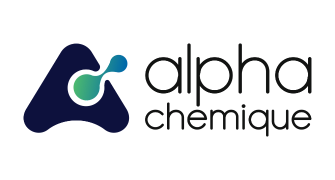Ethyl Glycol Introduction:
Ethyl Glycol, commonly referred to as ethylene glycol, is a versatile chemical compound extensively utilized across diverse industries. This colorless and odorless liquid possesses a pleasant, sweet taste. In the following article, we will delve into the properties, benefits, and applications of Ethyl Glycol, highlighting its significance in various sectors.
Properties:
Ethyl Glycol possesses several notable properties that contribute to its versatility and usefulness. It is a hygroscopic compound, meaning it readily absorbs moisture from the air. It has a low volatility and a high boiling point, making it suitable for applications requiring temperature stability. Ethyl Glycol is miscible with water and many organic solvents, allowing for easy formulation and blending.
Benefits:
The use of Ethyl Glycol offers numerous benefits in different industries. Firstly, it serves as a valuable solvent in various formulations, such as paints, inks, and dyes. Its excellent solvency power enables the dissolution of various substances, aiding in the production of high-quality products. Additionally, Ethyl Glycol acts as a humectant, preventing products from drying out and maintaining their desired moisture levels. This property makes it an ideal ingredient in cosmetics and personal care products.
Uses:
- Textile Industry: Ethyl Glycol plays a vital role in textile dyeing and printing processes. It acts as a solvent, helping to dissolve dyes and pigments, thereby enhancing color development and fastness. Moreover, it aids in preventing fiber damage during dyeing procedures.
- Cosmetic Industry: Ethyl Glycol is commonly found in various skincare and haircare products due to its hydrating properties. It helps retain moisture in the skin and hair, making it an effective ingredient in moisturizers, serums, shampoos, and conditioners.
- Beverage Industry: Ethyl Glycol is employed in the beverage industry to serve as a solvent for flavorings and other additives in the production of certain alcoholic beverages. However, it is crucial to emphasize that stringent regulations are in place to ensure its safe usage and adherence to permissible limits within the food and beverage industry.
- Agrochemicals: Ethyl Glycol is extensively utilized in the formulation of pesticides and herbicides. Its ability to solubilize active ingredients facilitates effective dispersion and application onto crops, enhancing the efficiency of agrochemical products.
- Ceramic Industry: In the ceramic industry, Ethyl Glycol acts as a deflocculant. By reducing the viscosity of ceramic suspensions, it enhances the flow properties and casting performance, leading to improved quality and efficiency in ceramic production.
Conclusion:
Ethyl Glycol is a versatile chemical compound with a wide range of applications in various industries. Its properties, such as solvency power, hygroscopic nature, and low volatility, make it an indispensable ingredient in products across the textile, cosmetic, beverage, agro chemicals, ceramic, and other sectors. Understanding the properties, benefits, and uses of Ethyl Glycol provides valuable insights into its significance and its role in enhancing the quality and performance of numerous products.

